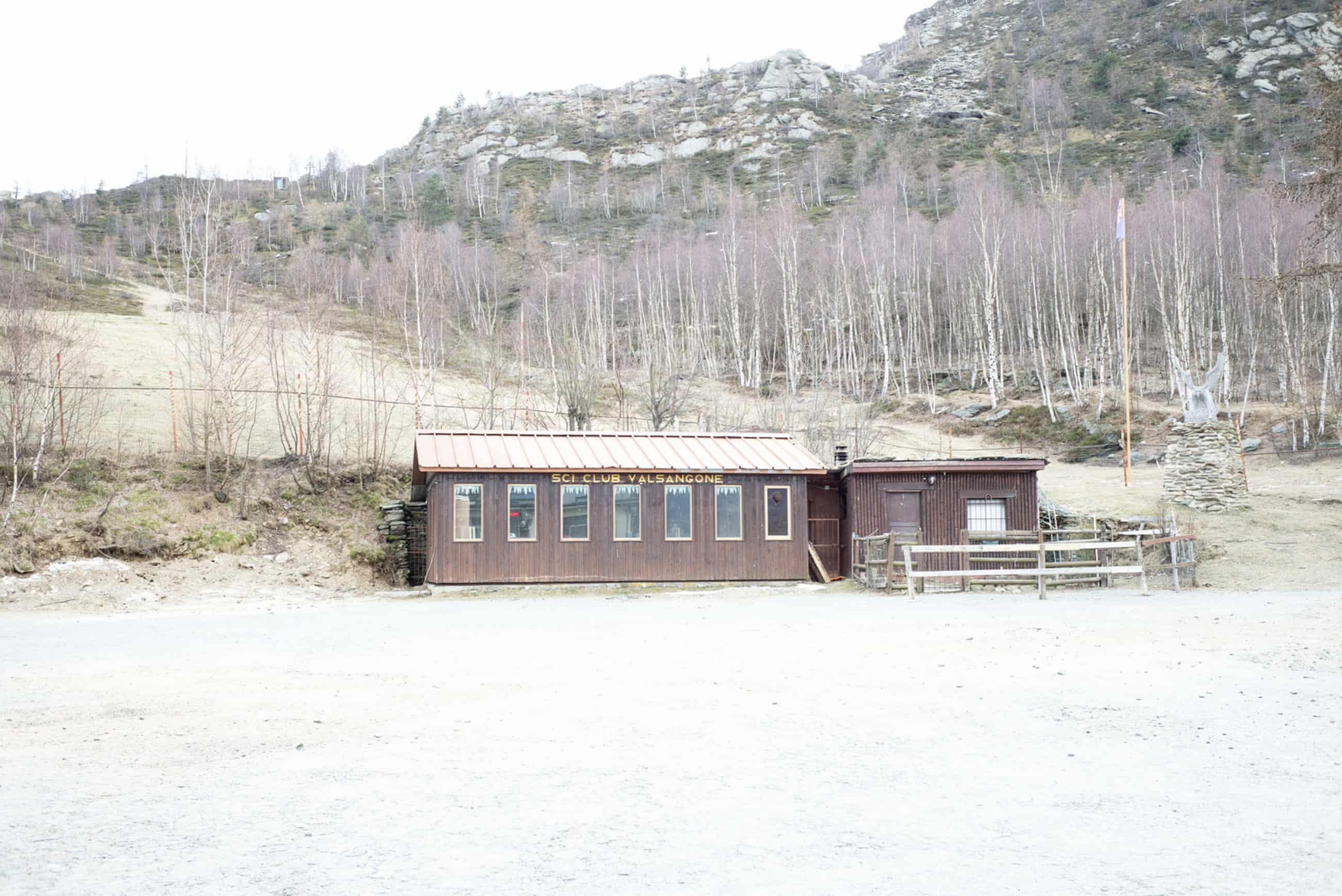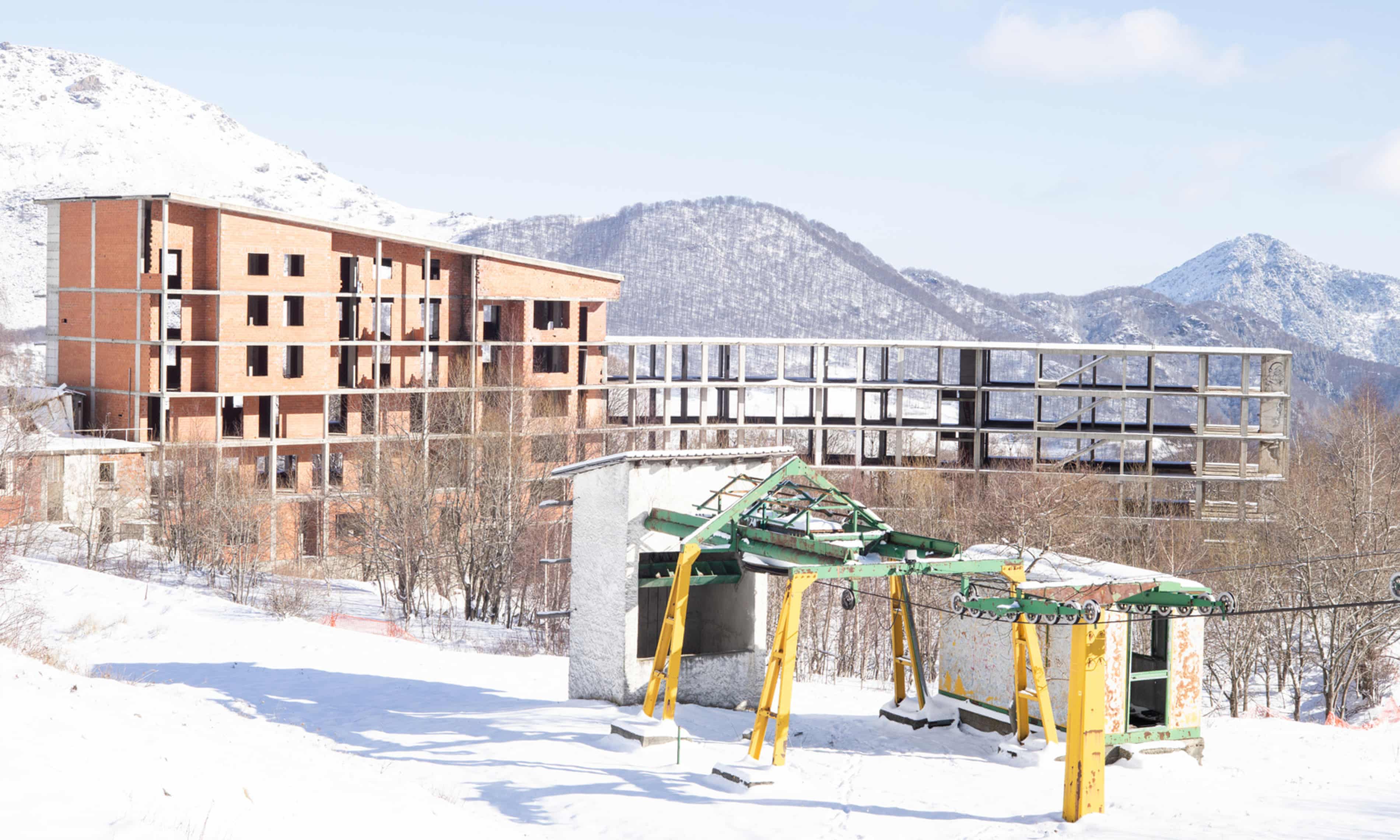
The Guardian picture essay
Seduced and abandoned: tourism and climate change in the Alps
Rising temperatures have contributed to the decline of hundreds of ski resorts on Italian slopes
by Tomaso ClavarinoDeserted ski lifts and ruined hotels are some of the relics of a tourist industry that first seduced and then abandoned the Alps, along with cement, steel cables, paved car parks and deforested slopes.
From Piedmont to Friuli, there are hundreds of abandoned ski resorts in Italy. Researchers counted 186 in 2011, a number that is likely to have grown since.
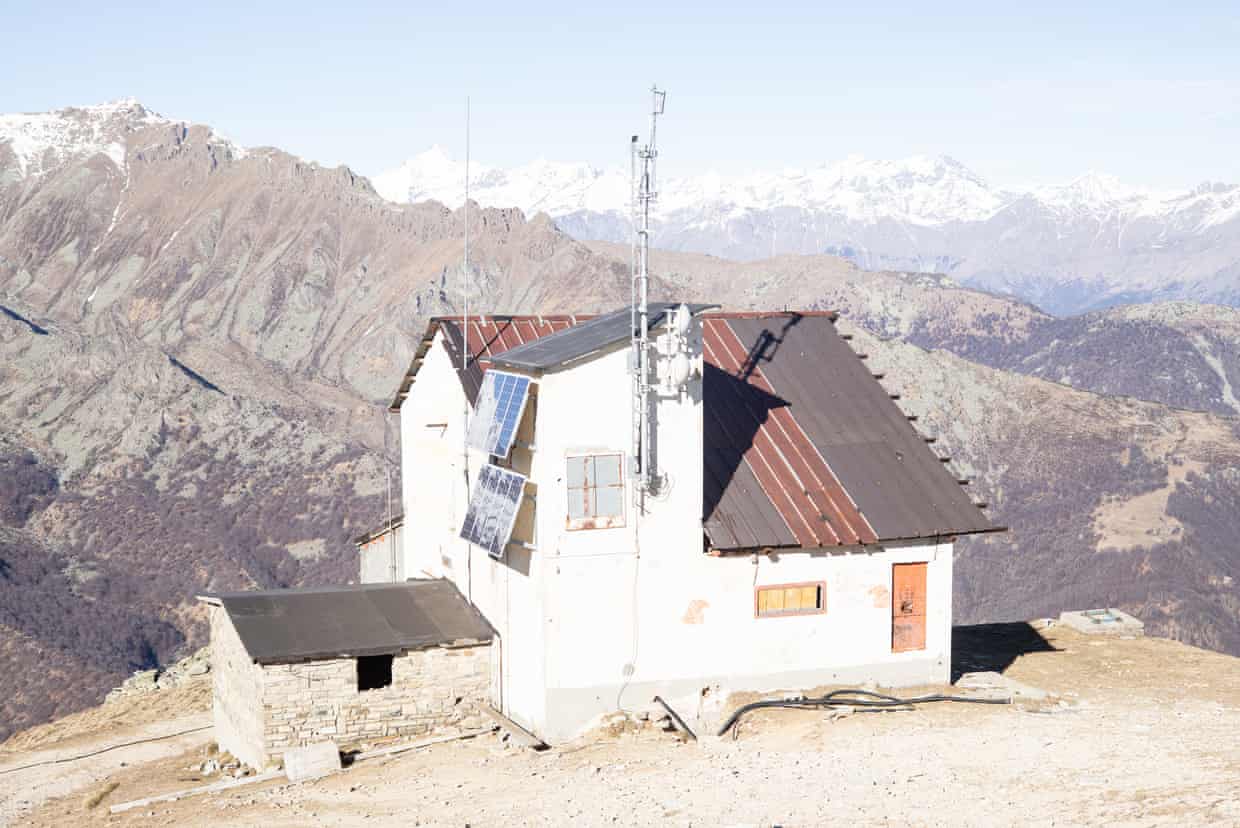
Warmer winters and shorter ski seasons combined with bad investments and high running costs have contributed to the slow death of small- and mid-sized ski resorts.
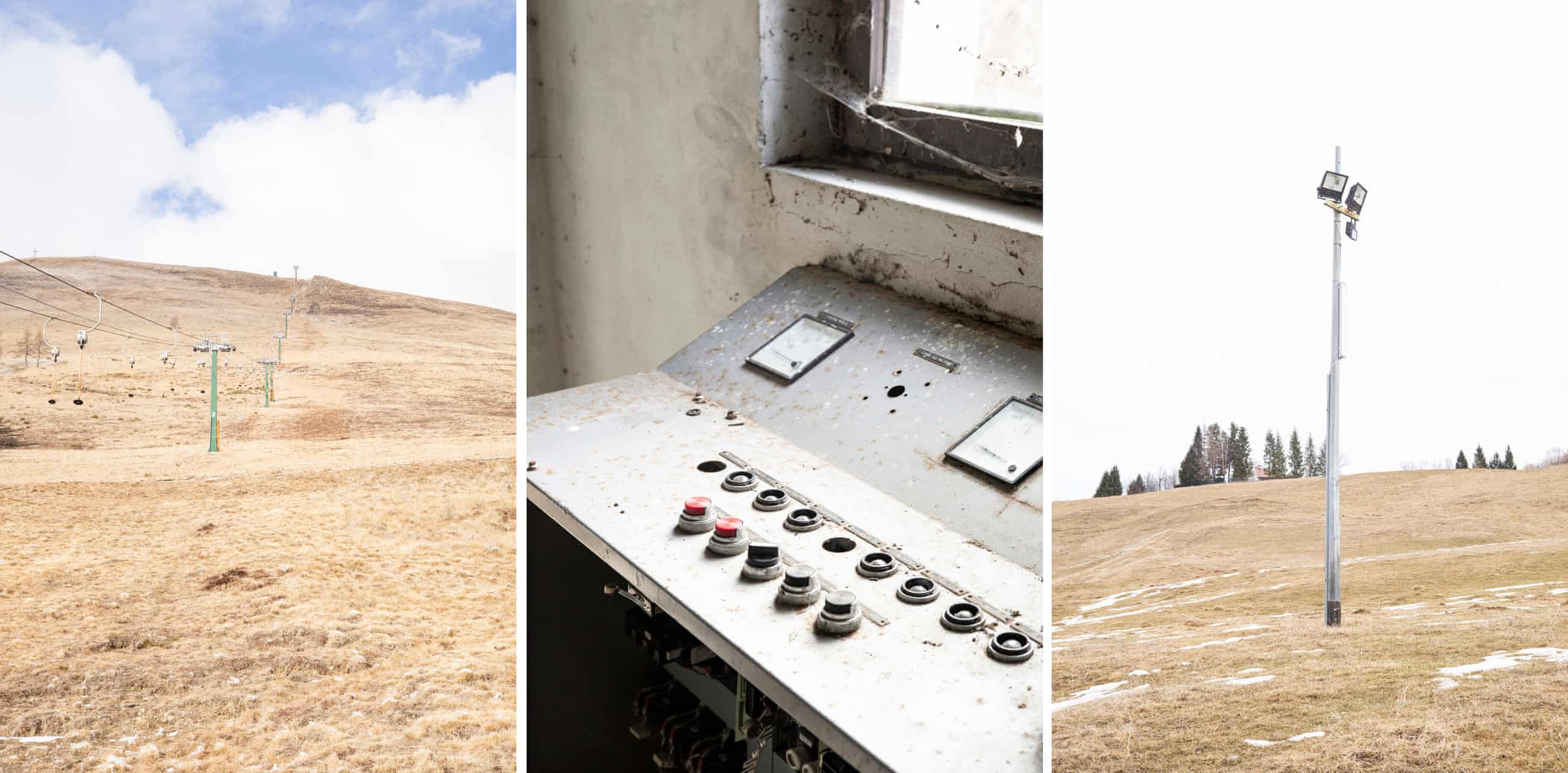
The past four years have been the world’s hottest on record, with mountainous areas particularly susceptible to climate change: every 1C of temperature increase on the plains corresponds to a 2C rise in the Alps.
Academics from ETH Zürich have forecast an increase of between 2.5C and 4.5C for Switzerland by 2050, and a similar situation is expected across the rest of the Alps.
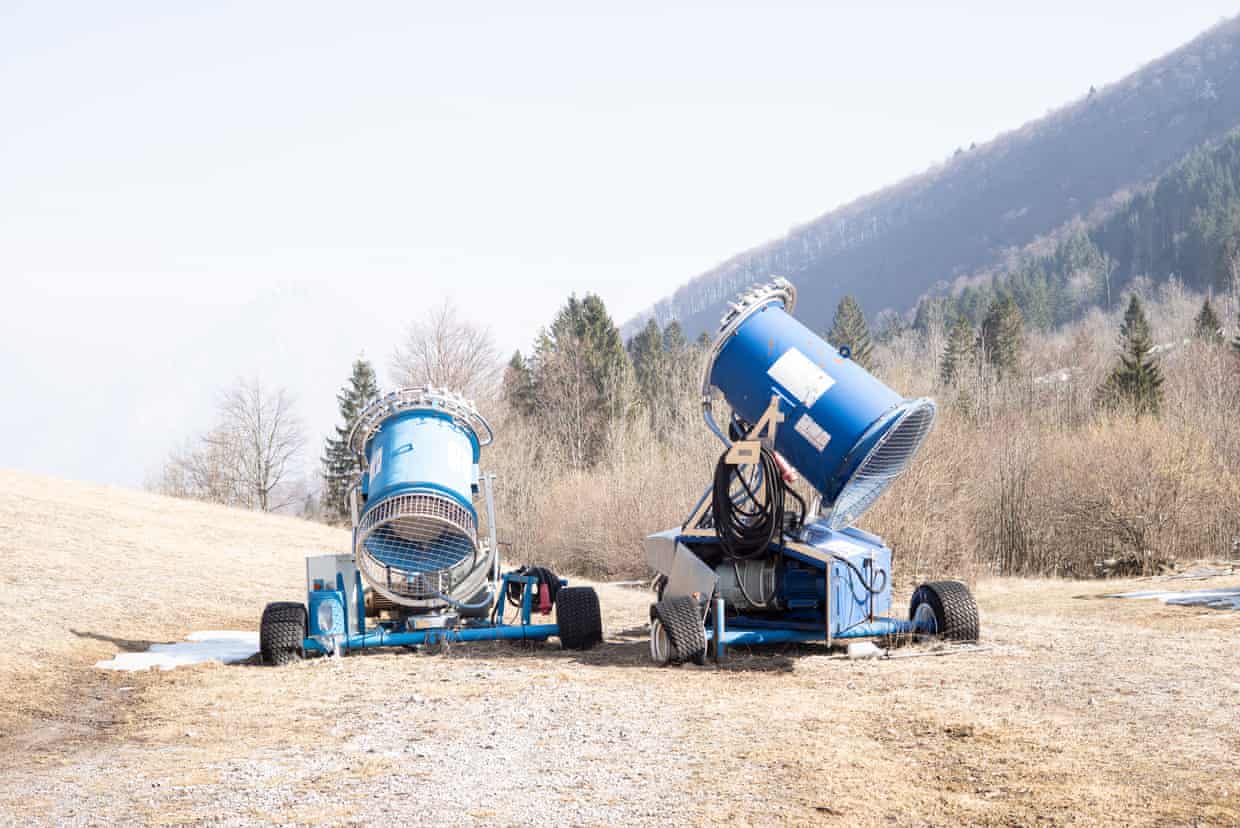
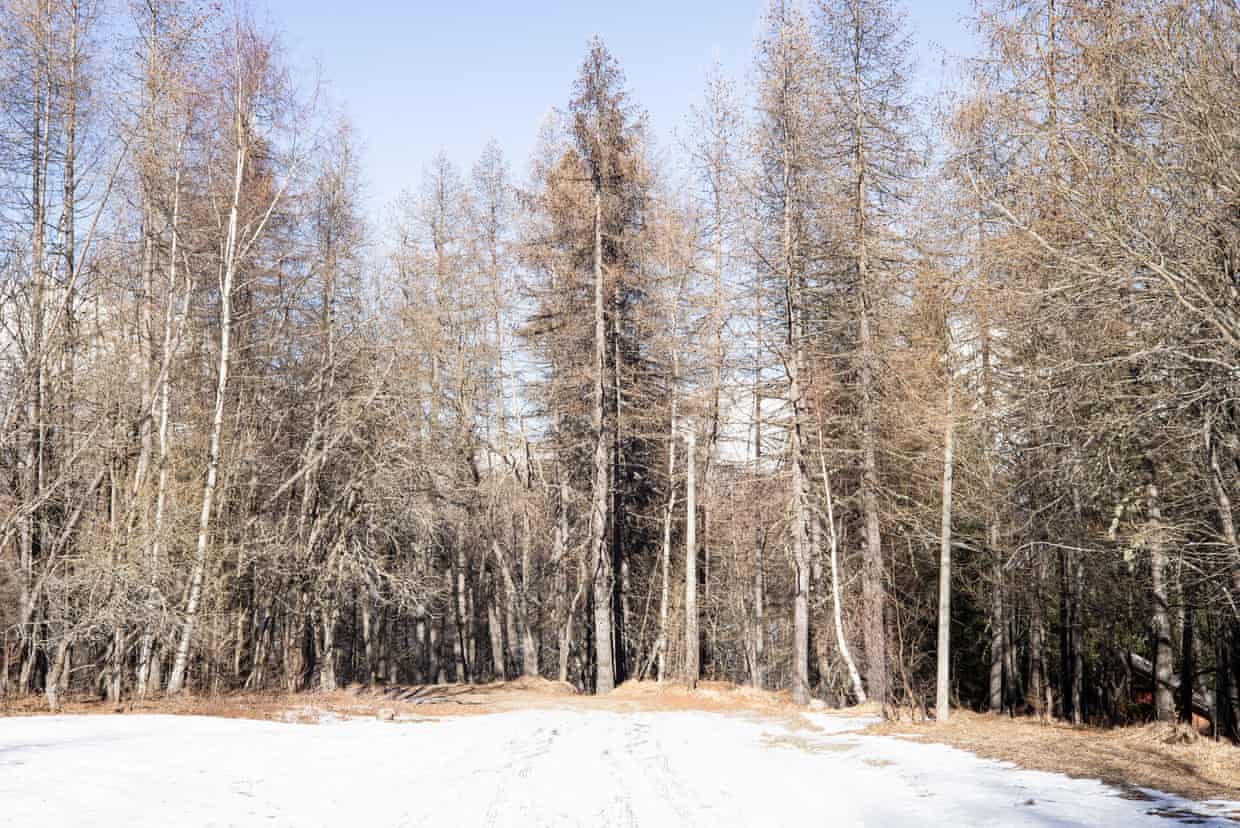
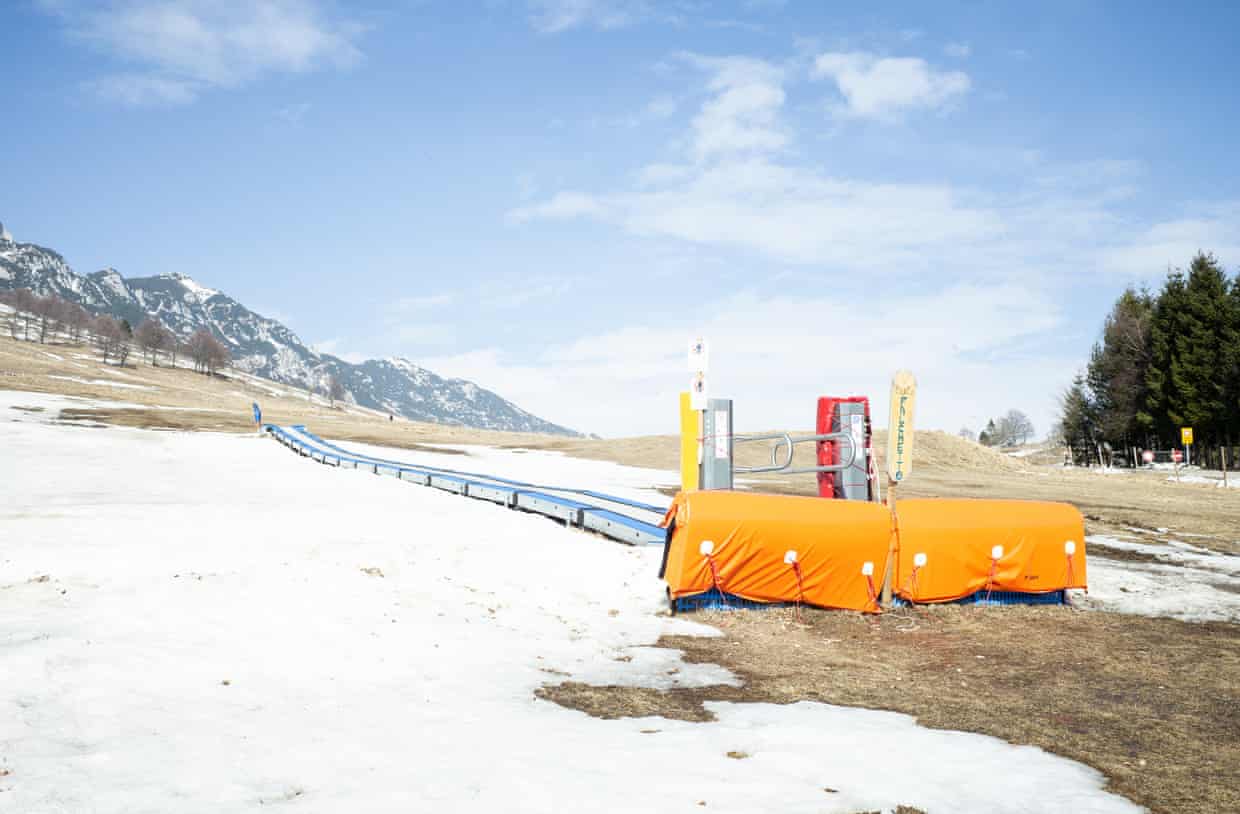
With forecasts like these, the future of ski resorts at lower altitudes grows less certain, and those that do survive are forced to rely increasingly on artificial snow.
“This past ski season, until February, the majority of ski resorts worked almost exclusively thanks to artificial snow,” said Francesco Pastorelli, of the International Commission for the Protection of the Alps (Cipra). “This has obvious consequences on the environment, and on the economic sustainability of ski resorts.”
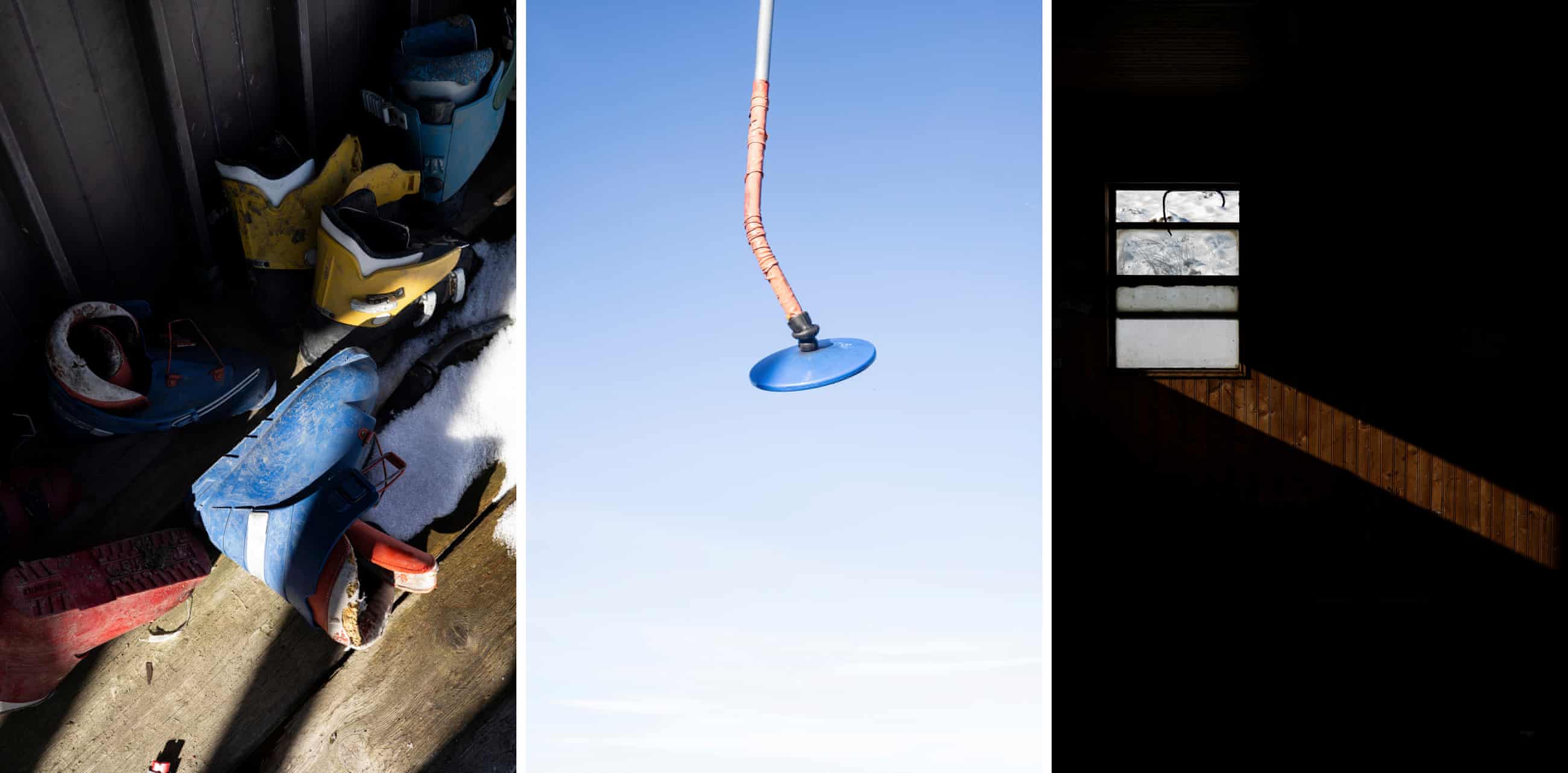
The Alps’ spectacular panoramas have changed, with white tongues of artificial snow now stretching through yellow meadows. Skiers queue to descend slopes that are increasingly frozen or rotten.
Few of them realise how expensive it is to produce artificial snow, which costs €3-5 per cubic metre. Italy has about 2,500 miles (4,000km) of ski slopes, and the bill for covering them with fake snow adds up to €500m (£420m) every season.
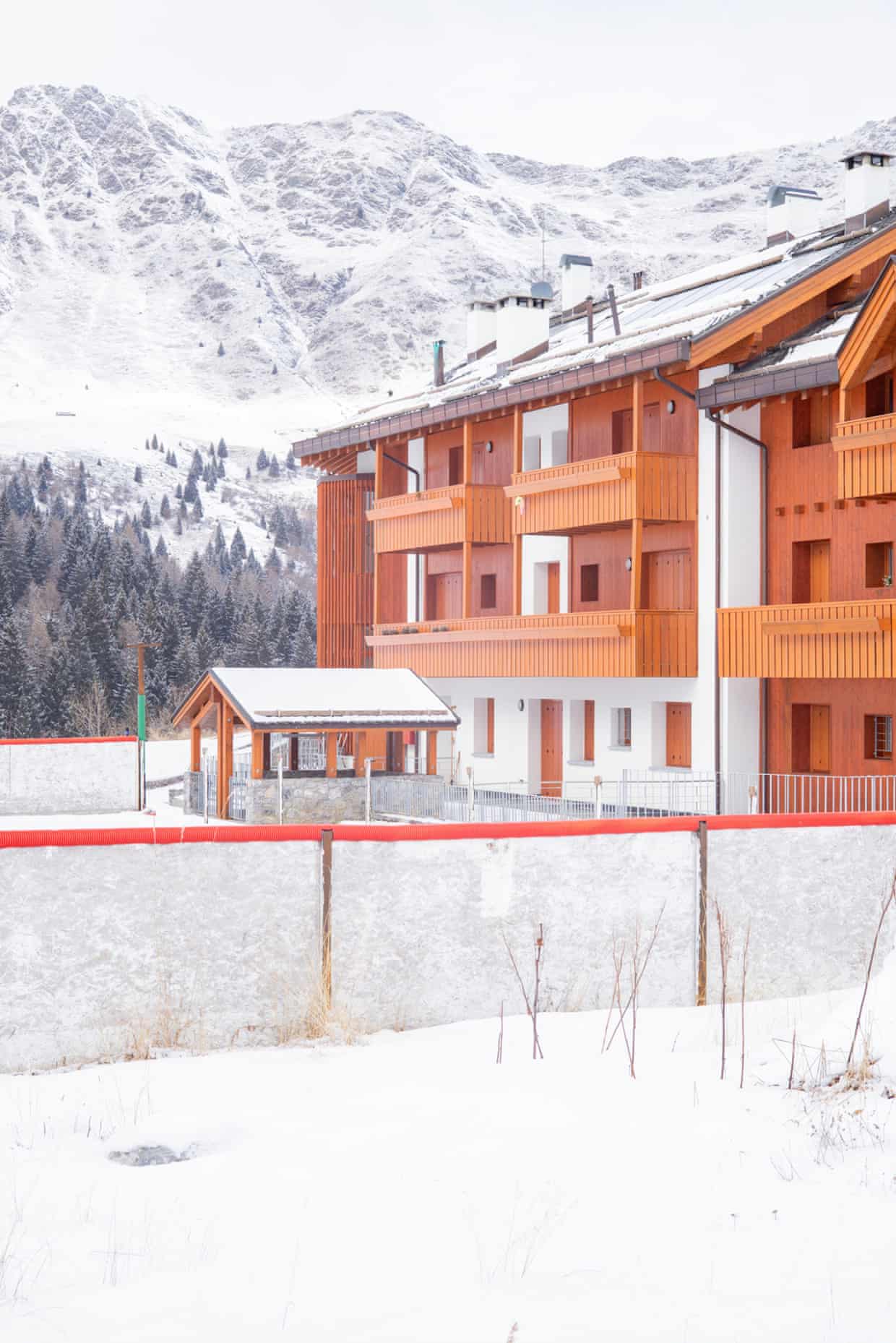
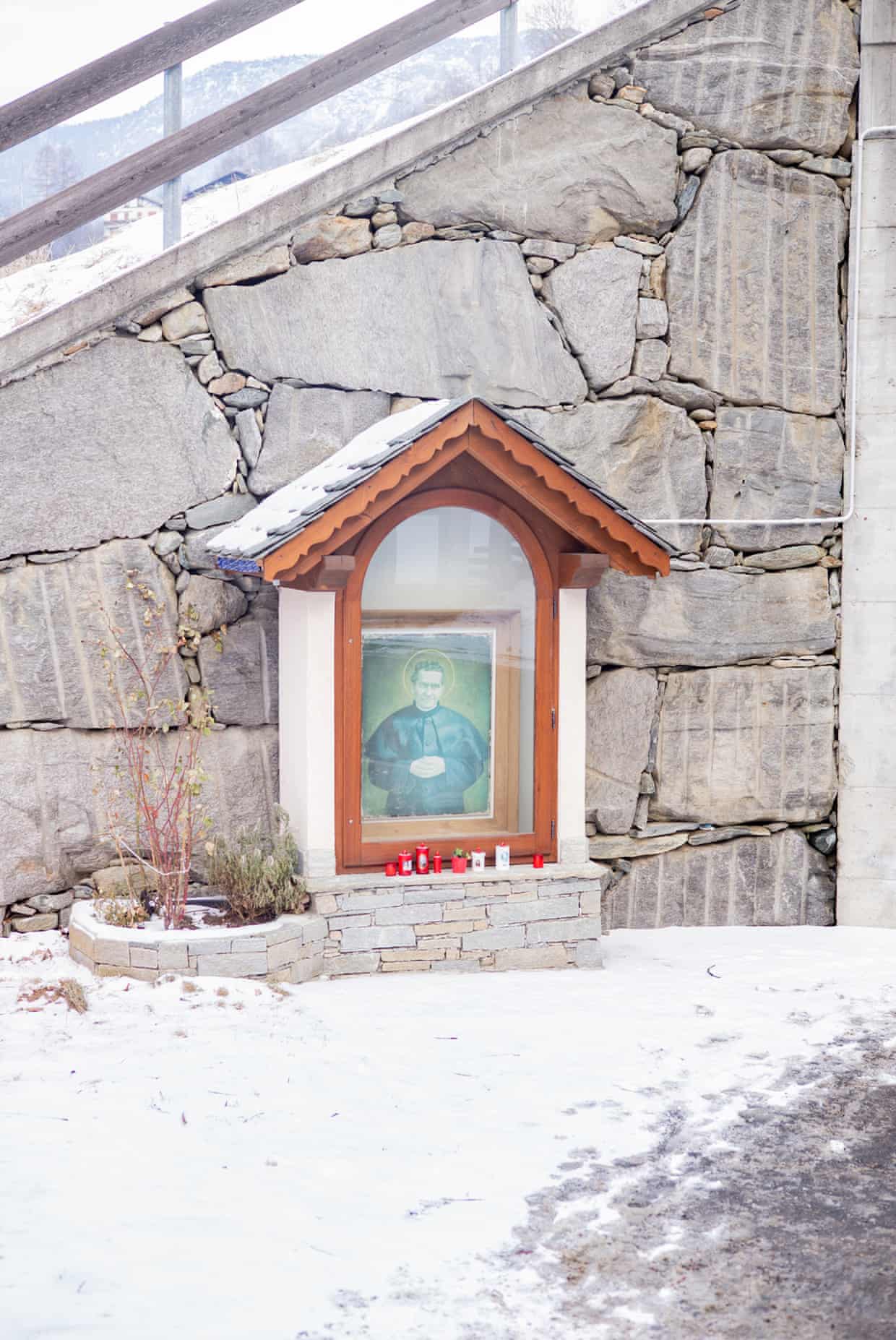
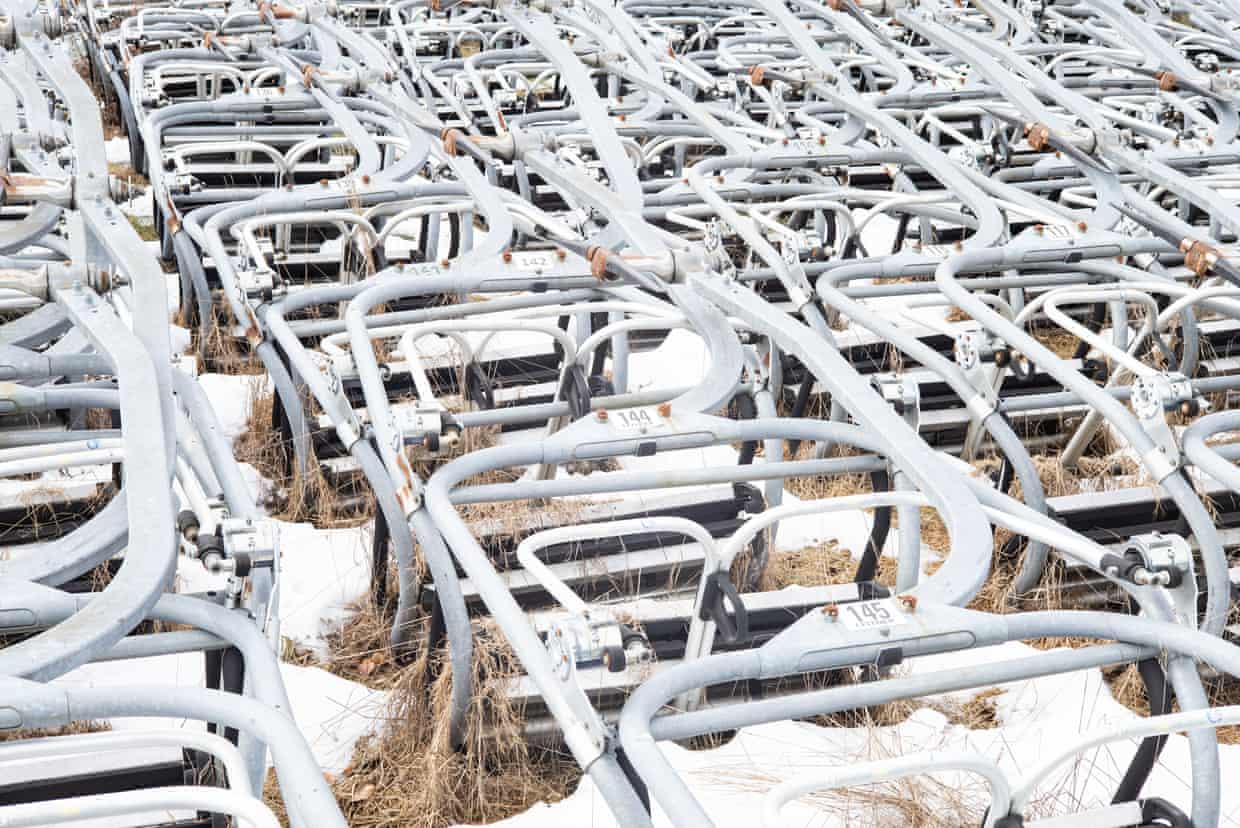
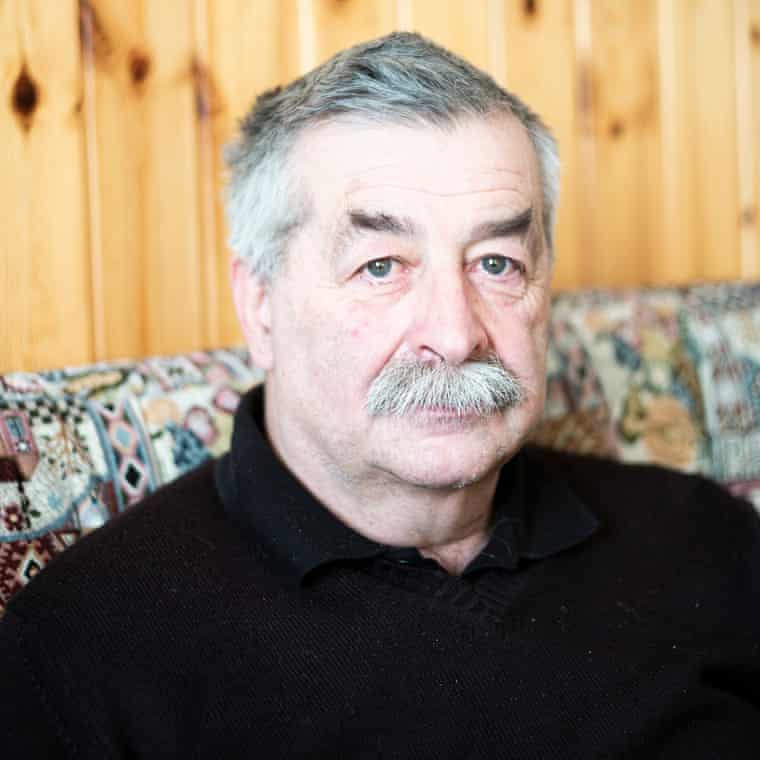
But although tourists and investors have fled from many areas, there are still people who have no intention of leaving.
Renzo Pinard owns the Belvedere hotel in Pian del Frais, a ski resort in Piedmont. In recent years there has not been enough snow for the resort to open, and tourists who used to visit have started holidaying elsewhere. Homes in the town are plastered with For Sale signs.
Pinard is one of the town’s last inhabitants. “This is my land, it is the story of my family,” he said. “I will never leave. Places like Pian del Frais can survive but we need to change our mind and find alternatives to alpine skiing.”
